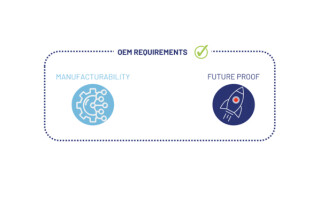Your equipment could be seized by the government
December 22, 2016
Blog

It's not always equipment failure that can bring your data center down. Sometimes it's something else altogether. Are you protected against confiscati...
It’s not always equipment failure that can bring your data center down. Sometimes it’s something else altogether. Are you protected against confiscation?
In 2014, the FBI ordered Microsoft to hand over email data stored in a server in Ireland. Microsoft refused, calling the demand unconstitutional. Two years later, the supreme court sided with the tech giant.
We are living in an era of globalization; an era where you can connect with anyone, anywhere in the world in a matter of minutes; an era where a given data center could contain information from clients and customers anywhere in the world. Therein lies the problem.
Different countries have wildly different laws related to user privacy, data storage, and corporate rights. What is legal and allowable in the United States, for example, may be against the law in China or Australia. Regulatory requirements on sensitive data in the EU will be different from those in Canada.
“Whether it be online gambling, diversity issues or matters surrounding personal data, the world that we live in has to constantly balance a globalization of information and data use, with the idiosyncrasies of nations and regions,” writes Kate Baker of Data Center Dynamics. “The World Wide Web has opened Pandora’s box leading to retrospective policies across many different legal and political systems.”
Alright, but, what exactly does any of this have to do with the equipment in your data center? Everything we’ve discussed so far has been related to data and the cloud. Where does hardware enter the picture?
If a government requires data from a particular server or system, what’s to stop them from seizing the physical medium rather than a copy of the data? If your data center is involved in a digital attack due to hackers, what’s to stop law enforcement from seizing your servers as part of the investigation? We’ve already seen instances of this happening.
Consider, for example, what happened to Vincent Canfield, owner of email hosting site Cock.li. Earlier this year, authorities in the city of Zwickau seized a hard drive from his Bavarian data center. This was the second of his hard drives to be seized. The first was taken in December 2015, after his email service was used to send a bogus bomb threat.
Canfield had nothing to do with the bogus threat, and it was through no fault of his own that his service was used for such ends. Yet his hardware was seized all the same. It should serve as a cautionary tale for the rest of us, to be careful where we host our data centers.
Eventually, I have no doubt that we will overcome the challenges associated with globalization. Until that day arrives, however, we will have to contend with a great deal more confusion. That confusion, I expect, can be significantly reduced by choosing the right colocation host, which should be a company in a stable regulatory climate, with the means and will to protect the data of its clients.




